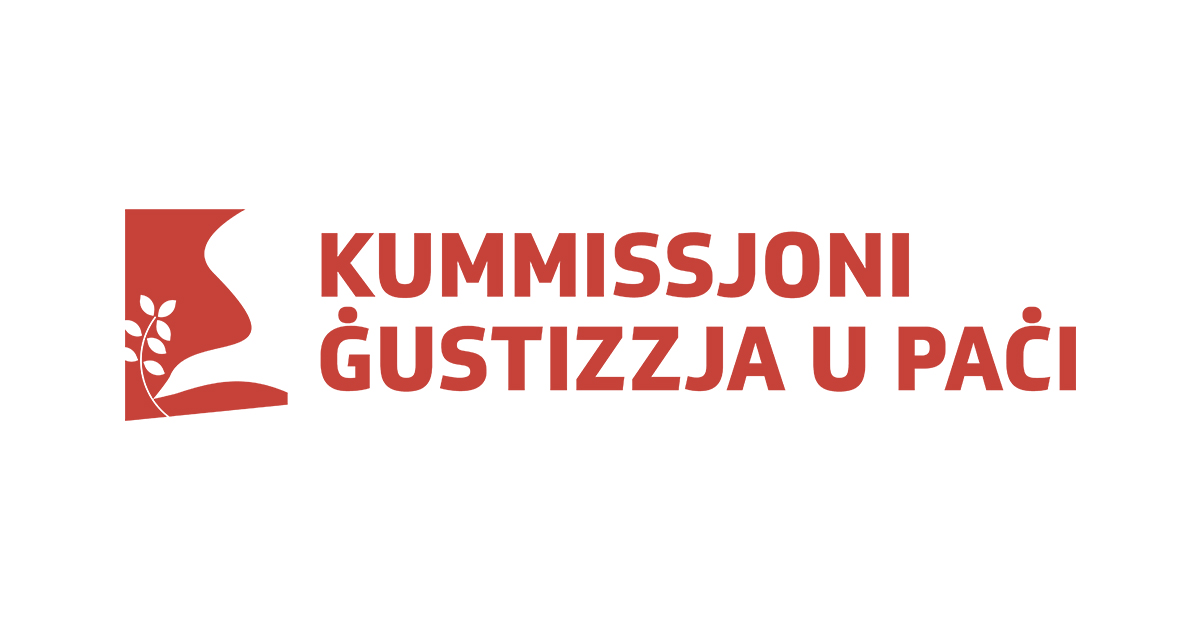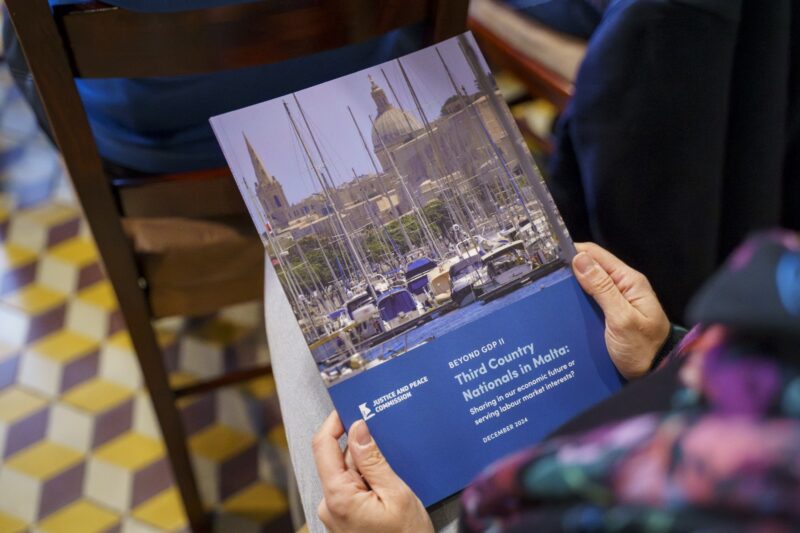The Justice and Peace Commission of the Archdiocese of Malta has published its latest report, Beyond GDP II: Third-Country Nationals in Malta: Sharing in our economic future or serving labour market interests? The report is released amidst evolving migration policies and an increasing reliance on third-country nationals (TCNs) as a key part of the Maltese economy.
Malta’s unique context — marked by an ageing population, low fertility rates, labour shortages and a drive for higher GDP growth — underscores the indispensable contributions of TCNs. It highlights the importance of treating TCNs equitably, alongside Maltese workers, rather than simply commodities contributing to GDP growth.
This report builds on the foundational work of Beyond GDP (2020), which initiated a critical discussion on evaluating the success of a country through metrics beyond GDP figures. Using a mixed-methods approach, the latest study combines publicly available statistical data with insights from semi-structured interviews carried out with stakeholders and TCN community leaders. The findings present a comprehensive perspective on the economic and lived experiences of TCNs in Malta.
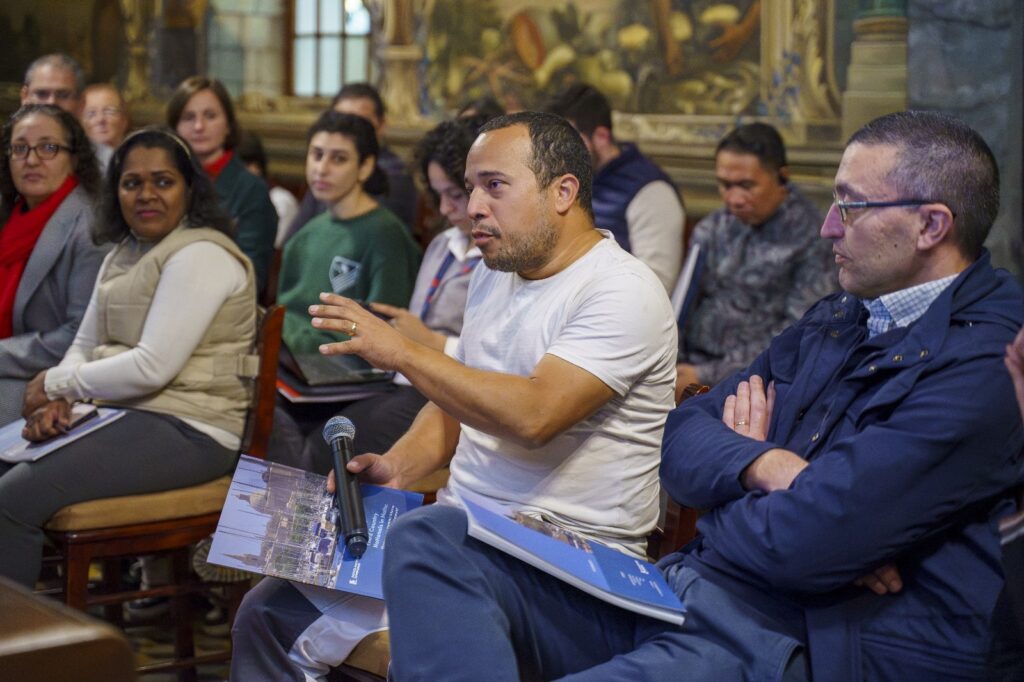
As of August 2023, TCN workers on a single work permit were predominantly young males (aged 25–39) employed in sectors such as administration (including temping agencies), accommodation and food services, construction, wholesale and retail, and manufacturing. These roles were often in low-productivity or low-skilled jobs, with TCN salaries averaging 17% lower than Maltese workers, despite many being overqualified for their positions. Moreover, a high turnover within the TCN labour market contributes to instability in the economy and society.
Beyond GDP II highlights the complexities and ambiguities of the single-work permit application process, which is further compounded by language barriers. This allows agencies to financially exploit the ‘overwhelmed’ TCN applicants. Many TCNs find documentation requirements cumbersome, sometimes unrealistic, or simply revenue-generating. This sentiment exacerbates the frustration of many who noted that applicants with connections or the ability to pay extra could often find ‘illicit’ pathways to bypass such requirements. Delays in processing permits also lead some to work illegally, leaving them vulnerable to further exploitation.
Under the single-work permit system, TCNs’ residency permit is dependent on the ‘benevolence’ of their employer. This makes them reluctant to report issues such as unsafe working conditions or unequal treatment for fear of termination and deportation.
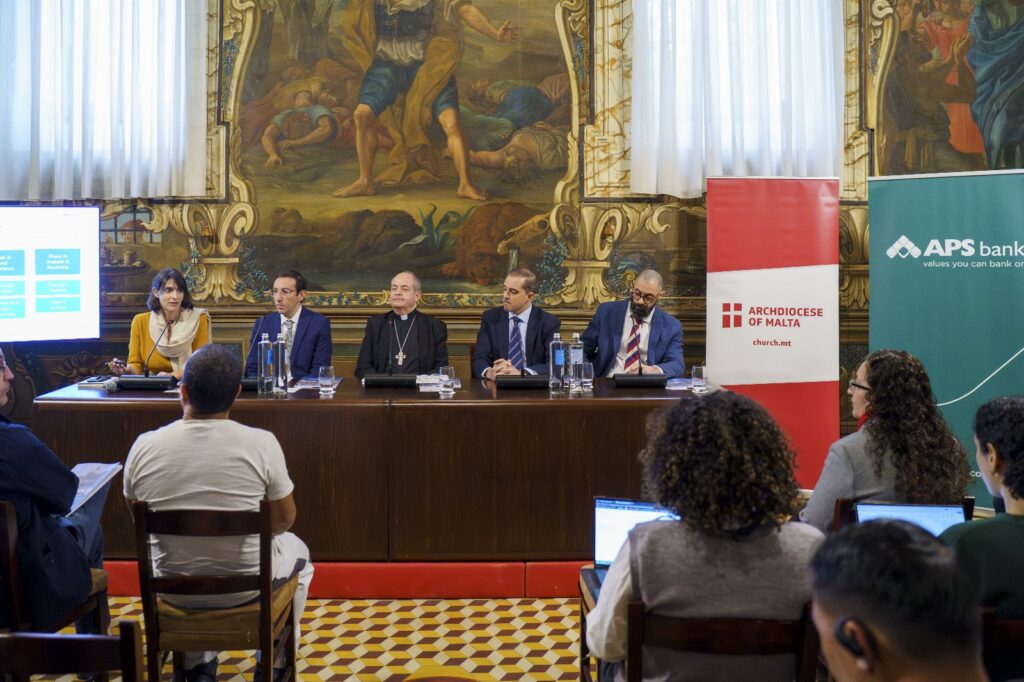
Rising rental costs and a lack of knowledge of rental regulations often lead TCNs into overcrowding or substandard living arrangements. These sacrifices are often made to save money and send remittances to their families back home.
Moreover, stricter income requirements have led to an increase in family reunification rejections, even for children already residing in Malta or born locally. As a result, children are left undocumented, making them more vulnerable and invisible. Alternatively, delays in processing children’s IDs further hinder their school enrolment and restrict their right to education.
Bishop Joseph Galea-Curmi expressed gratitude to the Justice and Peace Commission, and all participants involved in the report Beyond GDP II, and for shedding light on the hidden struggles of third-country nationals in Malta. He said that every human being, regardless of nationality or legal status, is created in the image of God. This foundational belief underscores the Church’s call to treat third-country nationals with respect and dignity and to protect their lives and their human rights. “This respect must be demonstrated through attitudes, policies, and concrete actions,” emphasised Bishop Galea-Curmi.
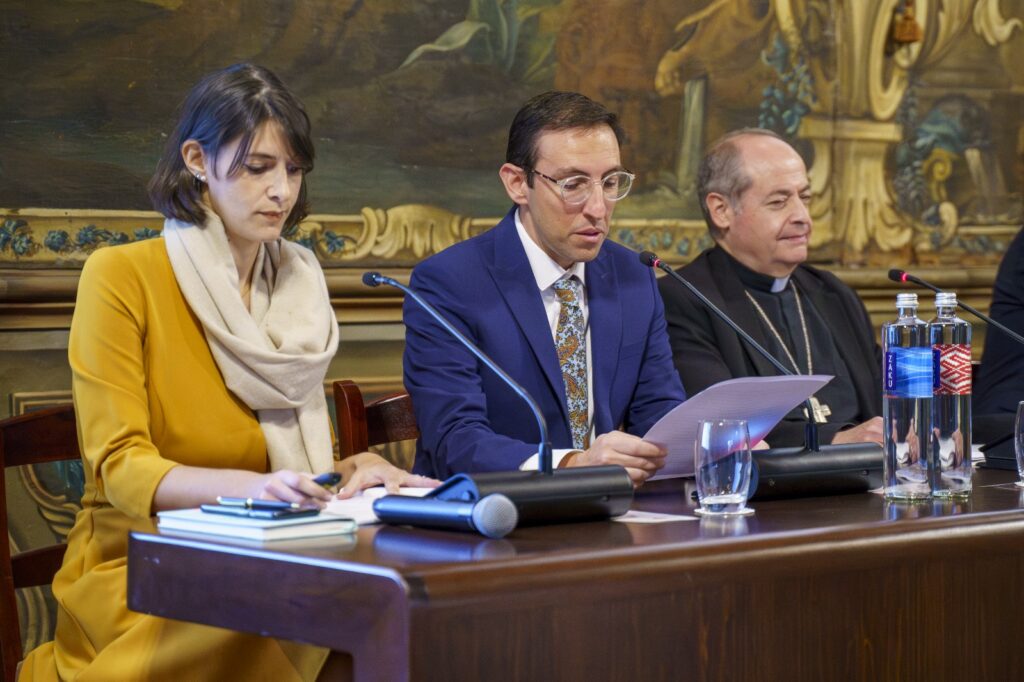
Justice and Peace President Daniel Darmanin remarked: “This report aims to empower TCNs by giving them a voice, highlighting their contributions, benefits, and challenges in navigating the single-work permit process, without portraying them as victims or undermining their autonomy. The Commission regards this report as an essential tool for shaping future policies, urging collective recognition of the significant contributions TCNs make to Malta and emphasising the importance of fostering a society where everyone can find purpose, dignity and community.”
The Justice and Peace Commission expresses its gratitude to all the participants in this study, particularly the foreign community leaders who shared their challenges and trusted the Commission to represent their voices.
Gratitude is also extended to the stakeholders, including lawyers and NGO members, who assist migrants and TCNs in navigating local systems and provided valuable feedback for the study. The Commission acknowledges their ongoing work to ensure an equitable society where no one is left behind. The publication of Beyond GDP II was made possible through the generous support of EY and APS Bank. The report is available here.
